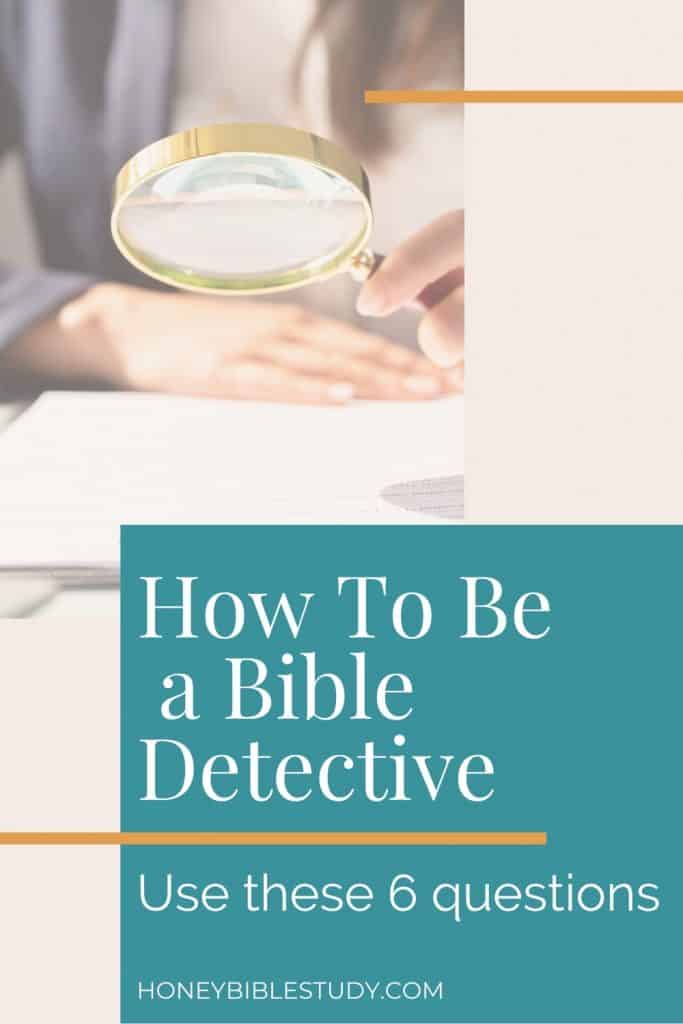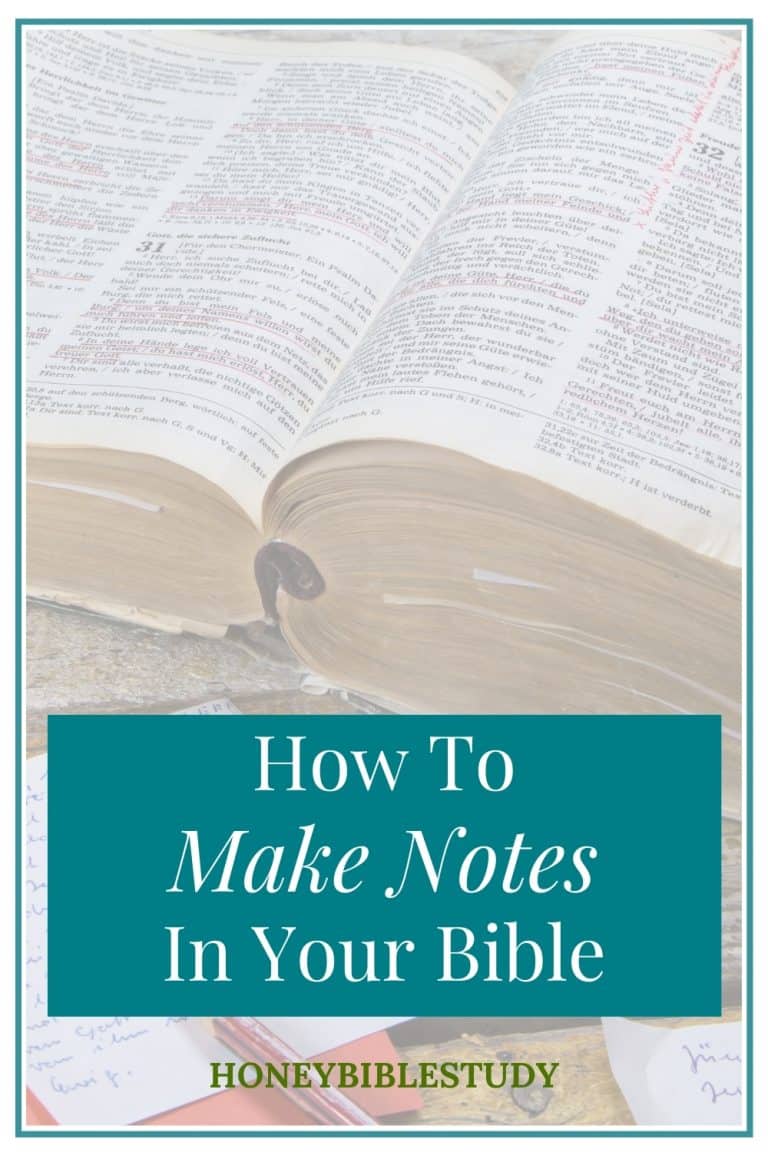Use 6 Questions For Your Bible Study
Whether you are Sherlock Holmes or a new detective there are 6 questions at the root of any investigation, and the same goes for your Bible study.
You see Bible Study is very much like detective work, you need to examine all the evidence before you can come to a verdict aka conclusion. Your job is to gather as much evidence as you can. And thankfully there’s a way to make sure you can do just that.
Ask The Key Questions
There are six straightforward questions you can use in your research. The quantity of evidence you find will depend on which portion of the Bible you’re investigating but using them gives you a sound framework to proceed. This framework of questions goes back hundreds of years but is still in daily use – it’s the basis of questioning for investigative journalism!

The Equipment You’ll Need
The fictional detective Sherlock Holmes used a magnifying glass as well as his vast knowledge of minutiae in his investigations, along with the help of his good friend Dr Watkins. You, my friend, can do far better than that! You have a better and more powerful ally – Prayer.
Do not underestimate the power of prayer. Ask the Lord Jesus by His Holy Spirit to
- guide you
- to help you in your search
- open your eyes to see the truth written there
- to give you understanding
- and discernment
Apart from your Bible, you will also need a pen, a notebook, a Bible Dictionary and possibly a Bible Atlas if you don’t have any maps at the back of your Bible.
1. Who Dunnit?
In other words, you need to find out who wrote the account ie the Book, Chapter or Verse. Who is reporting the information or recounting the event? Can you find out Who was there? Or Who was the author writing to?
2. Where Did It Happen
What information in your Bible gives you a clue about where it was written? Sometimes you may need to ask the alternative question of where did the event, activity or conversation take place?
3. When Did It Happen?
Can you find out when this event, activity or conversation took place? Is there any information in the passage you’re examining that will point you to a specific time? If you can’t find the answer then you will need to explore another source to get that information, that’s the time to turn to a Bible Dictionary. Look up the name of the person writing the passage to find out when they were alive and when they wrote the book. If it’s a biographical account such as one of the Gospels then the date the conversation or event took place.
4. What Happened?
Can you write a summary of what took place or what was said? What was the occasion?
5. How Did It Happen?
Make a list of details of the event you are exploring, and note how the event unfolded, in other words How it took place?
6. The BIG Question: Why?
Whilst all the questions are of importance in your Bible study, asking the ‘why‘ question will help you understand the circumstances. It will often give you insight into what God said, gave or directed, and the response of the people in question. Can you find the reason in the text you are investigating for the event or conversation? You may need to read the preceding chapter(s) or verses to find your answers and to put them into context.
Conclusion = The Verdict
When you’ve asked the 6 Questions for your Bible Study investigation you’ll be able to describe where the action or conversation took place, who was there, when they were there, why they were there, and how the event unfolded or the information was revealed. And the reason why it was said or done. Can you pull all the information together to form a conclusion?
The order of questions given here is slightly different from the standard 5 x ‘W’ + H but by placing the question ‘Why’ last you will find it easier to pull all the evidence together for your conclusion.
So are you ready to get sleuthing? Ask these 6 Questions for your Bible Study next time and see how much they help you to understand what you’ve read.
Take your Bible Study to the next level – try these ideas:-
- Detailed Bible Book Study
- Create a Deep Dive Bible Chapter Study
- Find out more about Bible Study using the Guided Bible Study Handbook HERE






